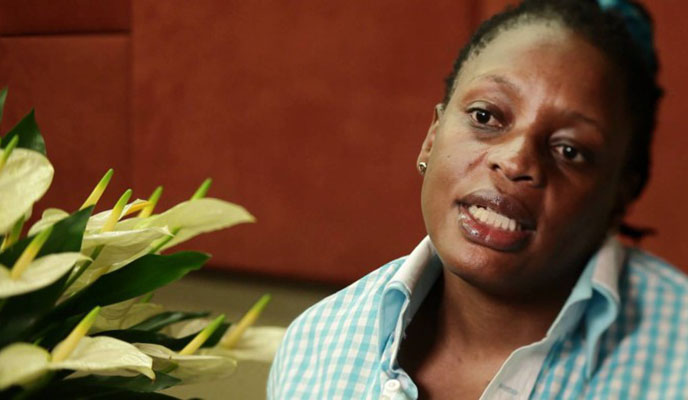
WOMEN in business and politics often complain of sexualisation of their brands (images) in the media, where it is actually their sexuality that is often talked about more than their successes.
BY VENERANDA LANGA
But, women like MDC legislator Priscilla Misihairabwi-Mushonga and media and brand specialist Thembelihle Khumalo feel women can at times use their feminine nature to advantage.
A conversation on overcoming sexualisation of women in business and political spaces by Women Politicians’ Incubator Zimbabwe (Wopiz) and Research and Advocacy Unit (RAU) held in Harare on Thursday saw different powerful women in politics, business and the media discussing how sexualisation of women by the media and advertisers has affected or elevated the brand of some powerful females.
Misihairabwi-Mushonga narrated how she has been portrayed as a notorious stunts woman who waves panty pads and second-hand underwear in Parliament.
The “stunts” have, however, managed to influence government policy with Finance minister Patrick Chinamasa removing duty on sanitary wear.
“To be a woman in politics one has to be courageous because unfortunately there is the issue of respectability that is expected of you, yet as a woman at times I also want to wake up, put on my tights and go to the shops without worrying about who is taking a picture of me,” Misihairabwi-Mushonga said.
“I have never bothered as to whether people respect me and so I came with pads and second-hand panties in Parliament. I never plan for the stunts. It came by accident that I was in a salon and women were talking about how life is difficult that they were resorting to buying second-hand underwear and I thought it will be interesting to raise the issue in Parliament.”
- Chamisa under fire over US$120K donation
- Mavhunga puts DeMbare into Chibuku quarterfinals
- Pension funds bet on Cabora Bassa oilfields
- Councils defy govt fire tender directive
Keep Reading
She said a good of experiences of what women have gone through will be the tiff between musician Stunner (Desmond Chideme) and his United Kingdom-based former wife, Olinda Chapel. Olinda was criticised even by other women when she opened up about her life with the rapper.
“We (women) have all had ‘Stunners’ in our lives and we end up showing our viciousness. I had to end up telling Chinamasa in the National Assembly that I am actually menstruating to force him to remove duty – and what I am saying is that it takes hard work to be doing that, and that is who I am,” Misihairabwi-Mushonga said.
The MP said it is possible to use one’s feminine side to get things done. She said during her time with the Copac management committee, she managed to use her feminine side to ensure the Constitution included gender issues.
Media specialist Patience Zirima from Media Monitors said women pictures are portrayed by the media as the selling points.
“There is sexualisation of female politicians, and even powerful politicians like Joice Mujuru are sexualised to the extent that everything she says is trivialised. An example are media headlines like Mujuru ready for Tsvangirai romance, which sound as if she is ready to be a junior partner, as well as gives an impression she is preparing a ‘bed’ for him. It does not matter what other things she does, sex is always the highlight,” Zirima said.
She said the media sexualises politicians, ignores their serious political statements and selects the sexual narrative to create a story that sells.
But, Zirima warned female politicians and other powerful women that whenever they appear in public they must always know the media is around and is misogynistic (hatred of women). She said, therefore, whenever making speeches women must say things that will brand them in terms of how they want people to view them.
Former Zapu vice-resident Emilia Mukaratirwa narrated how due to fear of negative media attention directed at female politicians she refrained from dating or sexual activity for 10 years.
“When I was elected Zapu vice-president I did not date because I was scared that if the media sees me with a man my name will be smudged. Women in politics and business have to deal with those issues,” she said.
Another politician who suffered sexualisation of her image is MDC legislator Jasmine Toffa (Proportional Representation).
“I suffered social media sexist remarks because I have a curvy body and some men were even commenting on what they would like to do with it. There is a lot of sexist publicity that women are getting and we have to fight it,” Toffa said.
Gender specialist Rekopantswe Mate said there was now a system of “motherising” of female politicians to the extent they were referred to as mother.
“What it creates is that you are a leader, but the thing that people see in you is that you are a mother, and then the other political or business attributes fall away. We have to fight to bring out that we are business women, politicians, and have other qualities,” Mate said.
Thembe Khumalo said women must make big decisions about their brands at the beginning of their career, adding any woman in a position of influence will find themselves in a spot where something bad happens, but their good track record will build back their brand.
“When you go into business and politics, it is a game, and you must play it to win and be strategic,” she said. Khumalo said women must leverage on their feminist qualities and stop seeing issues everywhere.
“When Mujuru is referred to as Amai we see an issue, but when Macro Economic Planning minister Obert Mpofu says ‘I am your obedient son’ to President Robert Mugabe we do not have issues with it,” she said.
Khumalo said women must stop complaining and see themselves as human than women and stop seeing lions on every tree.











